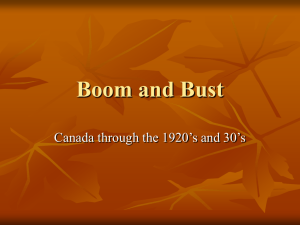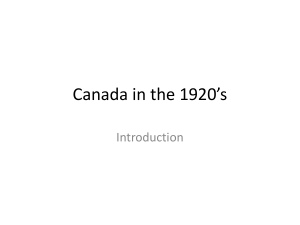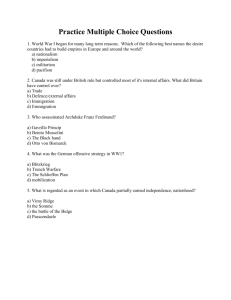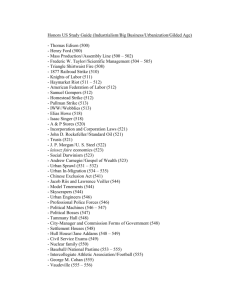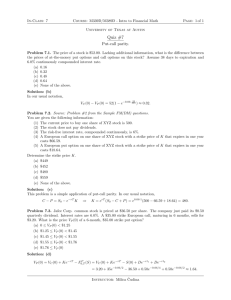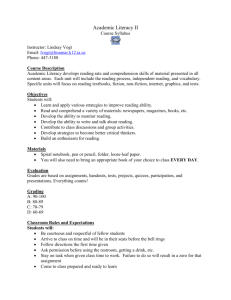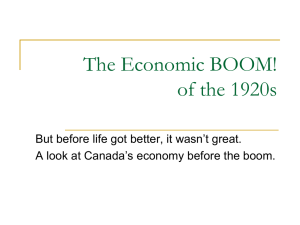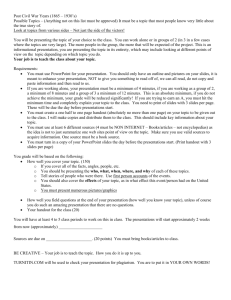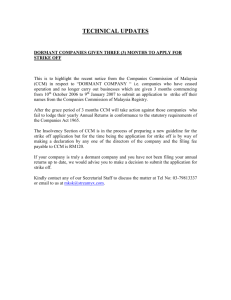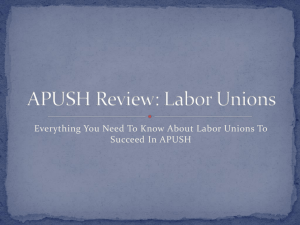Background to the Winnipeg General Strike
advertisement
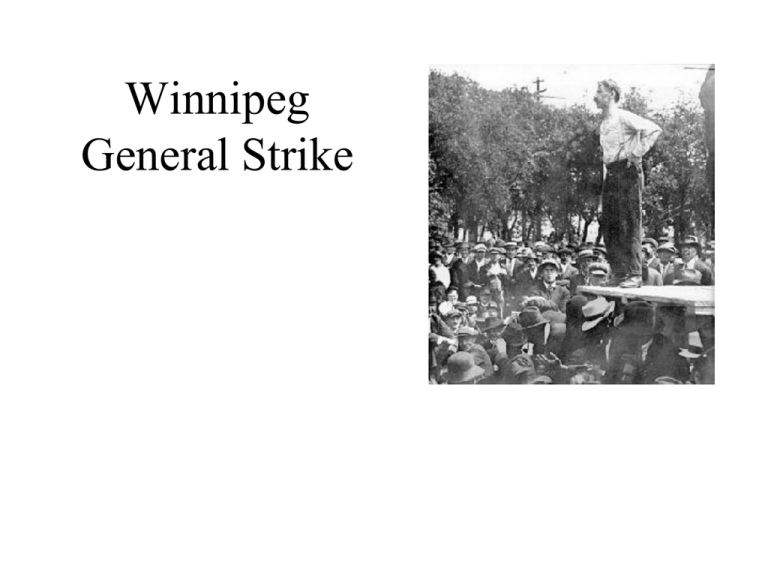
Winnipeg General Strike Background to the Winnipeg General Strike • At end of World War I, the situation for working people was difficult • the cost of living had risen by over 50% from 1913 • wages had only risen by an average of 18% • Therefore, it was harder for those Canadians who did have jobs to support their families. Also… • Drop in demand for goods; factories lay off workers • Soldiers returning have no work waiting for them, AND • They are pretty sure that big business has been making lots of money from the war that they’ve risked their lives in… = Anger Enter… • Labour Movement – Which means organizers who are trying to get a fairer deal for workers – They form One Big Union (OBU) Now, remember… • Back in Russia, in 1917, the Bolsheviks had revolted against the Czar (like a Russian king) and killed him and taken over the country’s government – a “people’s” government • For Canadian businessmen and government, this… Tsar Nicholas II = Yikes!!! They really thought • That the union leaders might want a similar revolution, overthrowing the government and big business: • a “Communist” revolution. All in all… • There was an atmosphere of distrust and suspicion What did the workers really want? • • • • The Metal Trades workers, in Winnipeg, wanted: a raise of 85 cents an hour a decrease in their work week from 60 to 44 hours the acceptance of the collective bargaining process by their employers – that the union would be able to negotiate a contract on behalf of all of the workers, instead of each worker bargaining for themselves And they wanted it badly enough • That they would go on STRIKE for it. • Approximately 30 000 people walked off the job on 15 May 1919 • Strike spread from industry to industry and Winnipeg shut down (mail, streetcars, newspapers, garbage collection, phones, milk delivery, etc.) • Central Strike Committee organizes strike • Citizen’s Committee of 1 000 opposes strike as a communist conspiracy • Sympathy strikes started across the country Which resulted in riots and death. •“Bloody Saturday”, June 26, broke the strike, 6 weeks after it started Impact of the Strike • In short run – disaster for workers (leaders jailed, workers “blacklisted” from work) • Union organizers were discredited (called Communist) – union movement took awhile to recover • BUT, on the other hand • Union workers had learned to become political and work within government

